If you’re divorcing a narcissist, you are likely feeling overwhelmed and frustrated by the lack of control that can seemingly come with it. Despite your countless hours researching, preparing and planning all the angles from a legal perspective — there is nothing ‘normal’ or conventional about this experience.
In many ways, divorcing a narcissist requires an entirely different approach compared to what one might expect when separating from someone who isn’t narcissistic. Here are 10 challenges unique to divorcing a narcissist that could further complicate what is already an emotional journey.
1. Narcissists never admit they’re wrong

When attempting to settle disputes and reach fair agreements with a person suffering from Narcissistic Personality Disorder, it’s important to understand the underlying issue — they are unable or unwilling to take responsibility for their actions. That is because narcissists tend to refuse to acknowledge that they ever do anything wrong.
This makes it incredibly difficult for anyone involved in any sort of agreement with them, especially if the other person is relying on both parties making reasonable compromises. As such, these situations can become quite strained and often require an extraordinary amount of effort and patience to try and come to some sort of arrangement.
Unfortunately, it’s almost impossible within Narcissism relationships to achieve a balanced equilibrium since one side simply won’t consider any kind of capitulation or concession in order for progress — or even peace! — to be made.
2. Gaslighting during the divorce process
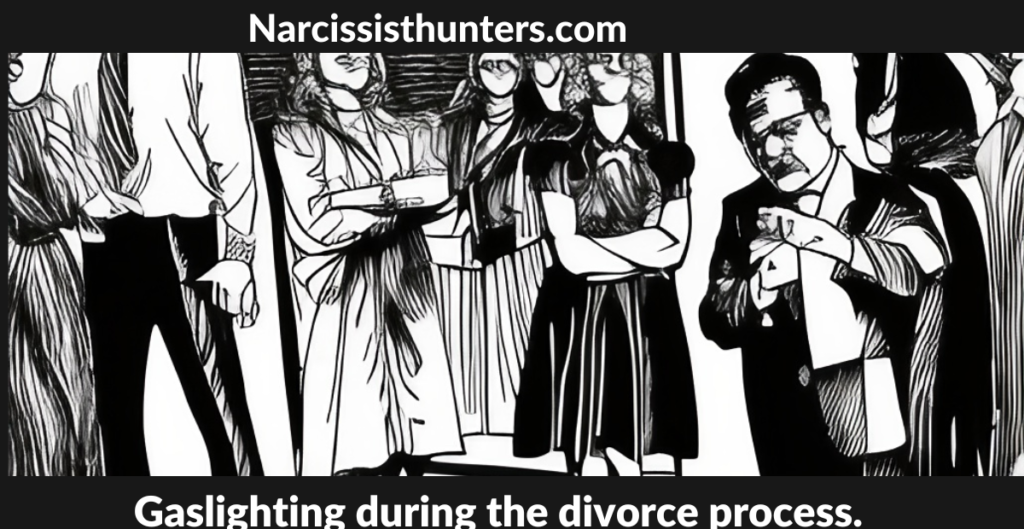
A divorce from a narcissist is unlike any other divorce. On top of the emotional and financial stress of simply parting ways, those seeking to divorce a narcissist are faced with an additional set of difficulties that come from their soon-to-be ex’s personality disorder.
In particular, gaslighting — a type of manipulation where someone leads you to doubt your memory and perceptions — has been known to cause serious psychological damage in anyone experiencing it.
The effects are magnified during a divorce, as the highly systematic and repeated behavior by the narcissist leaves the victim feeling apprehensive and often hopeless. As though they can’t trust themselves, victims may accept false feelings of guilt regardless of whether or not they’re justified.
Through frequent mind games impersonating remorseful apologies and denial of actions taken, narcissists seek to enforce feelings of worthlessness and remain in control by any means necessary. Fighting back against such insidious tactics is imperative for anyone going through such an ordeal; knowledge is power when it comes to emotional strength despite the circumstances.
Understanding what gaslighting truly entails allows victims to put their foot down early on in the process and get back up if need be; only then may one begin to heal both physically and psychologically.
3. Legal battles as an extension of narcissistic power dynamics
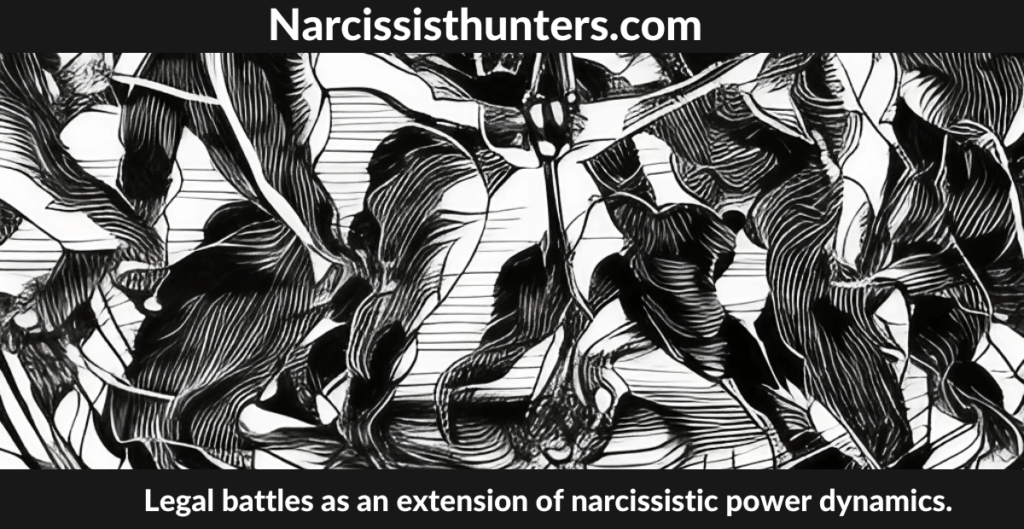
Divorcing a narcissist is not just a legal battle, it’s also an extension of the narcissistic power dynamics they maintained in the marriage. Narcissists are adept at using the courtroom to gain control over their ex-partners and continue subjecting them to emotional manipulation.
In doing so, they attempt to maintain a position of dominance in the partnership and ensure their ex-spouse does not further challenge their authority. A lot of times these tactics jeopardize any hope of achieving a peaceful resolution through shared compromise.
It’s important for those divorcing a narcissist to have adept legal representation as well as strong personal resolve and understanding of how narcissists operate.
4. Co-parenting with a narcissist

Divorcing a narcissist is far from the typical divorce experience. Not only do you have to face the loss of your former relationship, but you are also dealing with an individual who desperately needs to be in control of their circumstances.
This need for control can lead to manipulative behaviors such as withholding resources or using the children as pawns in a negotiation. When co-parenting with a narcissist, it can be challenging to set boundaries that they agree to and respect.
In order to make sure that boundaries remain in place, communication should go through written documents and emails whenever possible, so that its contents cannot be manipulated or twisted when details are needed in the future.
On top of setting clear boundaries, it is important not to engage with any form of negative or aggressive behavior, even if provoked. Keeping these strategies in mind can help ensure success while co-parenting with a narcissist during a divorce.
5. Emotional abuse during the divorcing a Narcissist
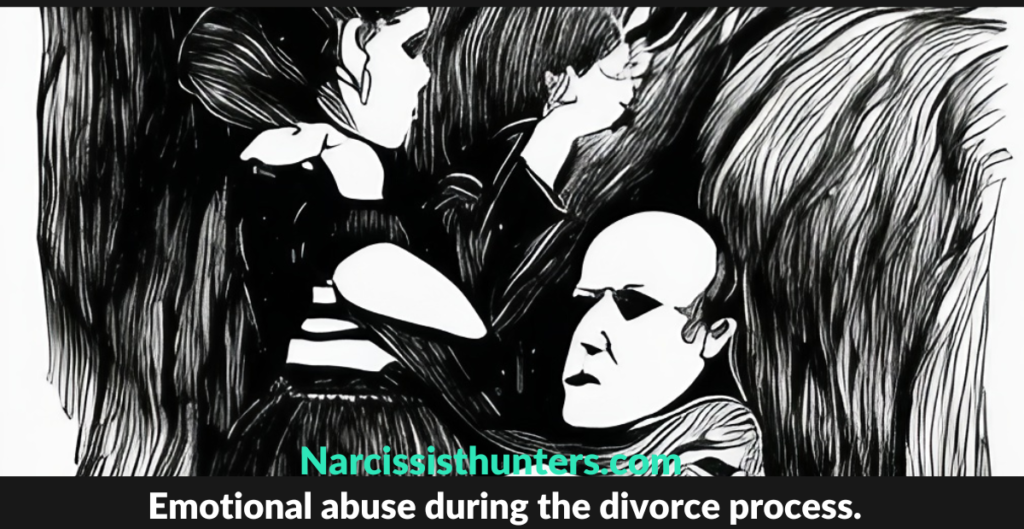
Navigating a divorce from a narcissist can be a roller-coaster of emotions as the abuser will often attempt to manipulate and control their partner. From mind games to repeated legal battles, separating from a narcissistic partner can become incredibly draining.
Studies have found that partners of narcissists are four times more likely to suffer from mental health conditions due to damaging emotional abuse such as gaslighting, blame shifting and projecting their own bad behaviors on their ex.
Victims not only experience fear but trauma, pain and anger when divorcing a narcissist. Research is revealing more about the psychological tactics used by abusers during and after the transition process, providing an opportunity for victims to understand why these divorce proceedings may feel strangely like an endless cycle.
6. Using finances as a means of control

Divorcing a narcissist can be a daunting process as they use finances as a means for control to remain in power.
They may try to manipulate their partner by omitting assets, not paying third-party expenses, refusing to pay fees associated with the divorce process, or undervaluing assets that are equally owned, just to name a few.
Furthermore, they may attempt to freeze bank accounts and limit your access to funds and resources. It is important to remember that you have rights both during and after the divorce process — seek an attorney if you feel like finances are being used against you in this manner.
7. Narcissists often play the victim

Every divorce is unique and can be very difficult for parties involved. What makes divorcing a narcissist different from divorcing a more “normal” individual is the manner in which the narcissist tries to manipulate the situation.
Narcissists often play the victim and attempt to shift responsibility away from themselves, even if they are the one at fault in the marriage. They will try to make it appear as though their ex-spouse is wronging them by claiming to be mistreated or neglected during the relationship.
As such, when divorcing a narcissist, it’s important for you not to fall prey to this manipulation, no matter how convincing their story may be. It’s also wise not to unload personal information that might support their false claims.
In short, divorcing a narcissist requires vigilance against potential manipulations so that justice may be served fairly and keep your interests and rights through the process intact.
8. Narcissists Run Smear campaigns to ruin your reputation
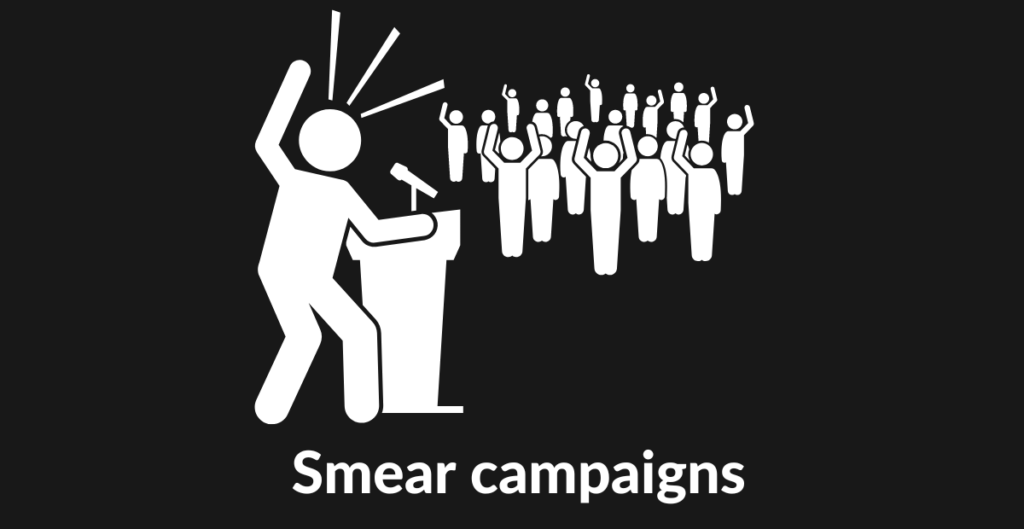
One of the most insidious tactics a narcissistic ex-spouse might use is the smear campaign. The narcissist may spread lies, rumors, and half-truths about their former partner to anyone who will listen: friends, family, neighbors, even coworkers.
The goal is to ruin their ex’s reputation and isolate them from their support network. This can be especially damaging for the non-narcissistic partner, who may have been the victim of abuse, gaslighting, and other forms of manipulation during the marriage.
Even if the smear campaign isn’t entirely successful, it can still cause a great deal of stress and uncertainty during an already difficult time.
9. The need for a strong support system during divorce
Divorcing a narcissist is a whole different ballgame. It’s not just about ending a marriage — it’s about disengaging from someone who thrives on controlling and manipulating others. It’s a process that can have long-lasting effects on your emotional well-being. That’s why having a support system in place is crucial.
Friends and family members who understand what you’re going through, a therapist who can help you work through your emotions, and a lawyer who knows how to handle a narcissistic ex-spouse can all make a big difference.
You can’t do it alone, so don’t even try. Embrace the people who care about you and lean on them when you need to. Together, you can weather the storm and ultimately come out on the other side in a better place.
10. Finding closure after divorcing a narcissist
Divorcing a narcissist is an experience like no other. It’s not just the legal proceedings that make it different, it’s the emotional damage that narcissistic abuse causes. It leaves individuals feeling lost, confused, and utterly broken.
Moving on can be incredibly challenging, but not impossible. Here are some tips to help regain self-esteem, heal from the emotional wounds, and finally find closure after divorcing a narcissist.
Firstly, it’s important to accept that the relationship was toxic, and that it was the right decision to leave. Secondly, focus on self-care, take time to prioritize mental and physical well-being. Thirdly, find a support system whether it be family or friends, or even seek counseling.
And finally, embrace the journey of self-discovery, it’s an opportunity to learn and grow from the experience. Remember, healing is a process, but with time and effort, it is achievable.
Final Thoughts
A divorce from a narcissistic partner is an especially difficult process, with an array of unique challenges for couples to face. At times, you may feel vulnerable, angry, and confused as the narcissist in your life continues to play mind games with you and attempt to manipulate the situation.
This is why it’s important for those divorcing a narcissist to have support on their side whenever possible — having people in your corner who understand what you’re going through can make a tremendous difference.
It’s also key to practice self-care during this time by focusing on your emotional and physical well-being: taking breaks when needed, participating in activities or hobbies that make you feel relaxed and connected to yourself, or booking time with a counselor if necessary.
Divorcing a narcissist is never easy, but you will eventually come out of it feeling empowered and relieved that another chapter in your life has come to a close.
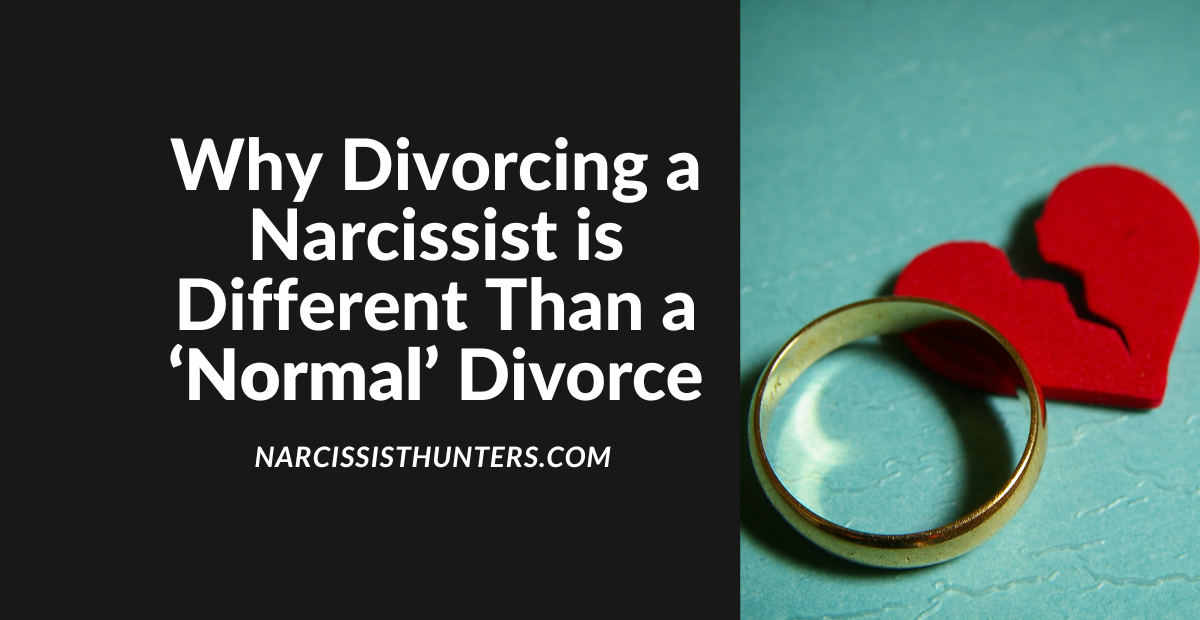
Your article made me suddenly realize that I am writing a thesis on Narcissism. After reading your article, I have a different way of thinking, thank you.